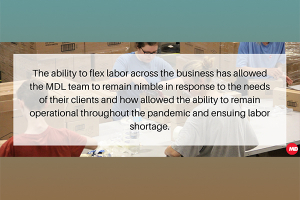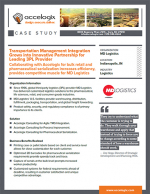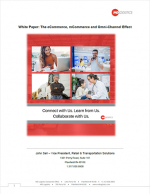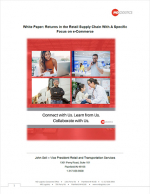The Perfect Storm: Lessons from the West Coast Port Closures of 2014
In this white paper we take on a discussion about what lead up to the west coast port closures, and how supply chains were affected.
Introduction
Every six years, the U.S. West Coast ports negotiate and renew their labor contract with the International Longshore and Warehouse Union (ILWU).
In 2002, a dispute caused major delays and port shutdowns. Again in 2014, protracted labor negotiations caused slowdowns and shutdowns throughout the West Coast.
However, additional external factors in effect in 2014 caused a ripple effect of delays, congestion, and even loss of product to the entire U.S. supply chain.
With approximately 45 percent of all U.S. imports passing through the 29 West Coast ports and representing 12.5 percent4 of the GPD, the congestion had a crippling effect on retailers during the holiday season.
Early estimates place the national cost of the congestion at as much as $7 billion in 2015 alone.
Third-party logistics provider MD Logistics mobilized to help its clients stay apprised of port conditions and choose the best course of action, taking cost and type of cargo into consideration.
As the crisis comes to a close, MD Logistics reflects on ongoing industry factors that will continue to cause delays and how importers can anticipate and prepare for future congestion scenarios.
Contents
- The Issue
- The Ripple Effect
- Guiding Clients through the Port Delays
- Compounding Factors
- Conclusion
What’s Related




Favorites





